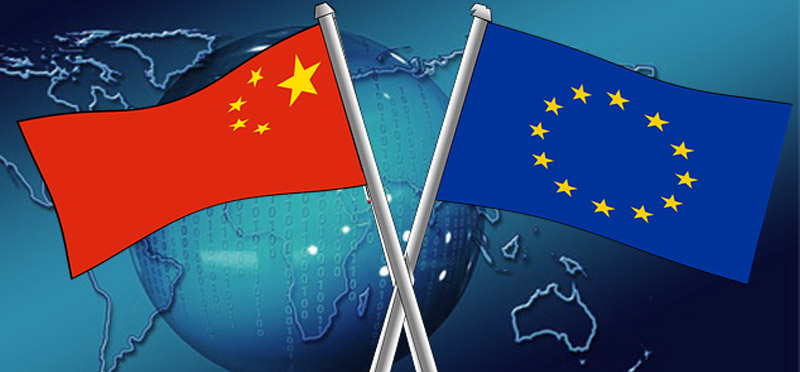WTO Panel on Patent Rights in China and Anti-Suit injunction

The EU Commission accuses China of having started to issue litigation bans since August 2020, especially against companies that own patents in the high-tech field of telecommunications.
Such a litigation ban is possible by means of an Anti-Suit Injunction (ASI), i.e. a court injunction, often with the aim of preventing proceedings in other states. Although this is not compliant with the legal concept in Europe, the ASI is nevertheless permissible in China and also in the USA.
In General, the initial situation for an anti-suit injunction is a failed or not seriously pursued licensing agreement for standard-essential patents (SEP) according to FRAND (Fair, Reasonable and Non-Discriminatory).
SEP and FRAND
The SEP and FRAND system was developed at the instigation of the European Commission.
Since the end of the 1990s, standard essential patents (SEPs) have been reported by the patent holder as 'essential' to the European Telecommunications Standards Institute (ETSI). This means that these patents are subject to the obligation to license them to competitors on FRAND terms, i.e. on fair, reasonable, and non-discriminatory terms. This is based on the idea that the relevant technology should be made available to all mobile phone companies or network companies via fair licenses and that no lunar prices should be called for essential technology patents that all market participants need.
So much for the theory. In practice, however, this regulation has led to major court cases for years, as crucial core parameters are not defined in the ETSI system: What is a fair offer? How credible is the willingness to take a license, and how must this credibility and willingness to license be proven?
Licensing readiness and anti-suit injunction
The Huawei v. ZTE judgment of the ECJ of 2015 (EU: C:2015:477) and the "ping-pong" procedure outlined therein are decisive in this question. According to this, a SEP holder can only sue for an injunction against a competitor if it has already offered the competitor a license on FRAND terms, but the competitor has proven unwilling to accept the license offer.
In German case law, the BGH decision Sisvel v. Haier of 2020 (BGH, KZR 36/17) is particularly relevant, according to which it is not sufficient to merely declare such willingness in order to prove the willingness to license. Rather, purposeful participation in license agreement negotiations is required (see also High Court of England and Wales (J. Birss): 'a willing licensee must be one willing to take a FRAND license on whatever terms are in fact FRAND' (EWHC, the judgment of 5 April 2017, [2017] EWHC 711 (Pat) para 708 - Unwired Planet v Huawei).
If there is no licensing agreement for a SEP under FRAND terms achieved, ASI can be used as a strategic element. This approach is particularly popular in the interplay between domestic and foreign countries, with increases of ASI and counter-ASI up to the Anti-Anti-Anti-Suit-Injunction (AAAASI), which by now can be described as bizarre.
A WTO panel on patent rights in China
Now the EU Commission is requesting the establishment of a WTO panel in the dispute with China over the anti-suit injunctions.
In particular, the EU alleges that China's actions are inconsistent with Article XXII:1 of the General Agreement on Tariffs and Trade ("GATT") with respect to certain measures affecting the protection and enforcement of intellectual property rights. China has also failed to fulfil its obligations under Articles 63.1 and 63.3 of the TRIPS Agreement, it is alleged.
The EU refers to the 2020 decisions of the Chinese courts in relation to SE patents, specifically in the cases of ZTE v Conversant, Xiaomi v InterDigital, Oppo v Sharp, and Samsung v Ericsson. This dispute with China was triggered by the decision of the Supreme People's Court of China in Huawei v Conversant on 28 August 2020. Patent holders who go to court outside China often face significant fines in China, which puts them under pressure to settle for below-market royalties, the EU said when it filed the panel's motion against China on 18 February 2022.
For months, the EU held consultations with China on this allegation, but to no avail. With the establishment of a WTO panel on this issue, the EU is seeking an international ruling on this dispute. On 20 December 2022, the WTO agreed to the establishment of this panel, but China was able to reject this establishment once.
The European Union therefore requested the establishment of a dispute settlement panel for the second time. And the Dispute Settlement Body (DSB) of the WTO agreed: on 27 January 2023, the panel was established against China on this issue.
(Last update: 31 January 2023)
A ruling by the panel is now expected in about 1.5 years.
We are a patent law firm with special expertise in innovations and inventions "in the digital" in Frankfurt am Main. No matter whether you want to file an IP application or fight for the maintenance of a contested patent: we are happy to represent your interests. Thanks to our international network, we can represent your rights in the best possible way in almost all countries.
Please contact us or ask for a non-binding business proposal by phone at +49 (0)69 69 59 60-0 or info@kollner.eu.
.







